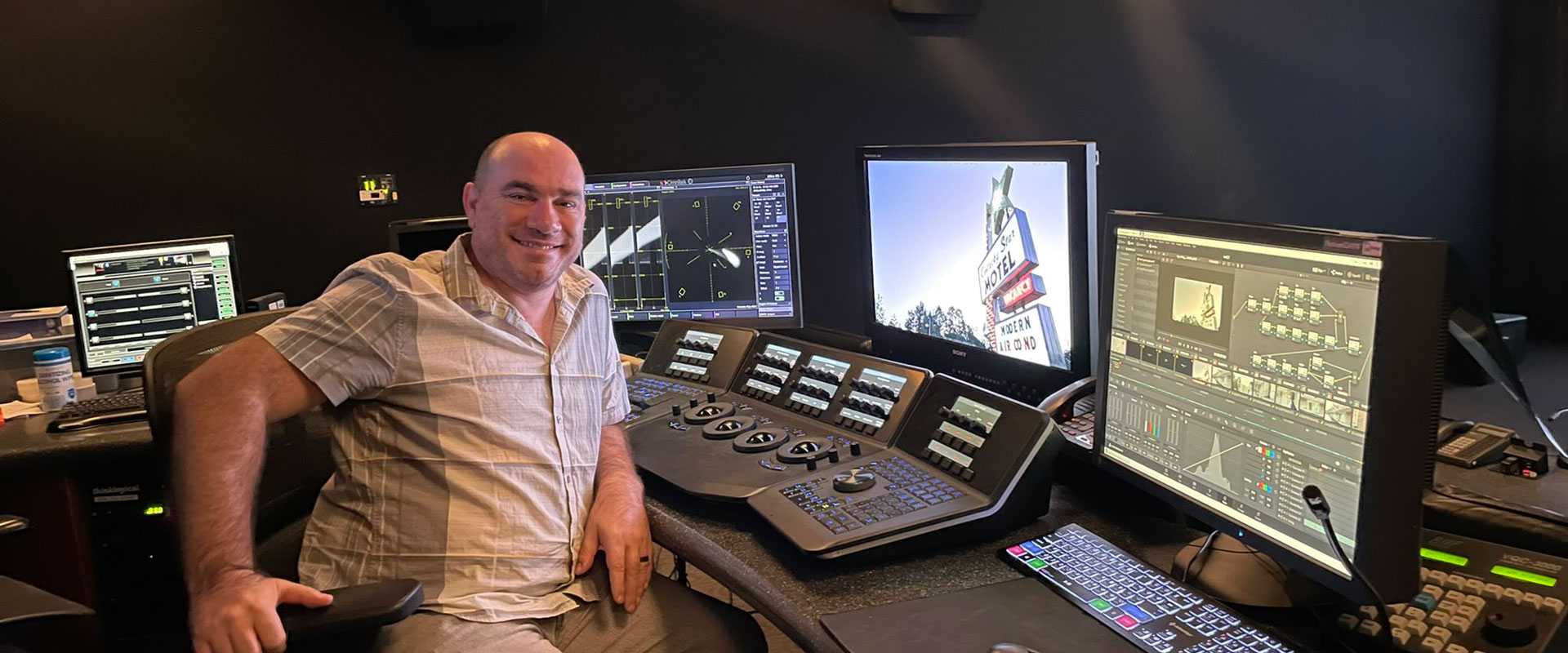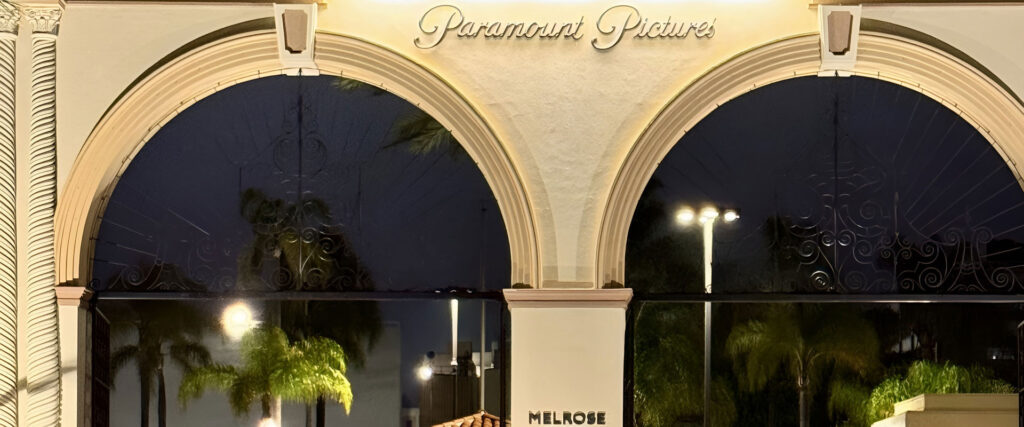Hollywood’s Big Contraction: Voices of Italians Working in the Industry
Following strikes that halted cameras from May to November 2023, Hollywood’s recovery has been slow. According to the U.S. Bureau of Labor Statistics, employment in sets and recording studios saw a 20% contraction in April compared to pre-pandemic levels. Lockdown and picket lines aside, this marks the lowest employment rates in 30 years. FilmLA, responsible for issuing filming permits in Los Angeles County, reported an 8.7% decline in shoots in the first quarter of this year, with TV series productions alone dropping by 16.2%.
“It’s worse than the pandemic: four years ago, we still had some savings. We entered this crisis already too battered,” says Coxy, a 45-year-old Milanese costume designer with 12 years’ experience in local studios. “The decline began before the strike. No production dared to start, fearing imminent halts. I completed a long project for Hulu in March 2023. During editing, reshoots were needed but delayed due to disputes. I anticipated a call by January, but instead, I started this week! Meanwhile, I’ve found nothing else. I just hope another strike doesn’t devastate us.”
The industry awaited with bated breath the outcome of the negotiations between producers (traditional majors and streamers) and IATSE, the union representing set and post-production workers. Over 170,000 crew members including costume designers, set designers, cameramen, electricians, editors, and catering providers, can’t wait to read the tentative agreement the parts reached on Tuesday night. “Hopefully, it’s the light at the end of the tunnel,” Coxy remarks.
“No one dared to move before this deal,” reports producer Michele Greco, adding, “I recently filmed an NBC pilot, but in Atlanta. Hollywood shoots are now cost-prohibitive: crew wages and equipment rentals make shooting in LA almost twice as expensive as Georgia. It’s unsustainable for me and studios that suffered severe losses post-COVID and during strikes,” explains the 55-year-old Roman who has worked in Hollywood for two decades.
“Studios are cash-strapped; they must make deep cuts,” Greco observes. “The strike enabled them to terminate costly contracts and shut down unprofitable projects.” In 2024, 90 films are slated for release (down from 100 in 2023), and series production will decrease to around 300 (from 481 in 2023 and 633 in 2022, per Ampere Analysis). Other financial setbacks include declining theater attendance (forecasted US box office of $8 billion in 2024, down 10% from 2023 and 30% from 2019) and reduced platform subscriptions post-lockdown peak.
“Everything has changed; there’s no turning back. Major studios must now satisfy stock markets more than produce quality cinema,” believes Walter Volpatto, a 1971-born Turin native in Hollywood for 20 years. Known for color correcting major films like Star Wars: The Last Jedi, Dunkirk, Green Book, and Francis Ford Coppola’s Megalopolis, he reflects, “Isn’t it astonishing Coppola had to self-finance and spend three months securing a North American distributor?” Married with two children and a mortgage, Volpatto laments, “I have no work until January, a situation reminiscent of my early career. If this persists, I’ll need to look for a different job.”
Share:
Following strikes that halted cameras from May to November 2023, Hollywood’s recovery has been slow. According to the U.S. Bureau of Labor Statistics, employment in sets and recording studios saw a 20% contraction in April compared to pre-pandemic levels. Lockdown and picket lines aside, this marks the lowest employment rates in 30 years. FilmLA, responsible for issuing filming permits in Los Angeles County, reported an 8.7% decline in shoots in the first quarter of this year, with TV series productions alone dropping by 16.2%.
“It’s worse than the pandemic: four years ago, we still had some savings. We entered this crisis already too battered,” says Coxy, a 45-year-old Milanese costume designer with 12 years’ experience in local studios. “The decline began before the strike. No production dared to start, fearing imminent halts. I completed a long project for Hulu in March 2023. During editing, reshoots were needed but delayed due to disputes. I anticipated a call by January, but instead, I started this week! Meanwhile, I’ve found nothing else. I just hope another strike doesn’t devastate us.”
The industry awaited with bated breath the outcome of the negotiations between producers (traditional majors and streamers) and IATSE, the union representing set and post-production workers. Over 170,000 crew members including costume designers, set designers, cameramen, electricians, editors, and catering providers, can’t wait to read the tentative agreement the parts reached on Tuesday night. “Hopefully, it’s the light at the end of the tunnel,” Coxy remarks.
“No one dared to move before this deal,” reports producer Michele Greco, adding, “I recently filmed an NBC pilot, but in Atlanta. Hollywood shoots are now cost-prohibitive: crew wages and equipment rentals make shooting in LA almost twice as expensive as Georgia. It’s unsustainable for me and studios that suffered severe losses post-COVID and during strikes,” explains the 55-year-old Roman who has worked in Hollywood for two decades.
“Studios are cash-strapped; they must make deep cuts,” Greco observes. “The strike enabled them to terminate costly contracts and shut down unprofitable projects.” In 2024, 90 films are slated for release (down from 100 in 2023), and series production will decrease to around 300 (from 481 in 2023 and 633 in 2022, per Ampere Analysis). Other financial setbacks include declining theater attendance (forecasted US box office of $8 billion in 2024, down 10% from 2023 and 30% from 2019) and reduced platform subscriptions post-lockdown peak.
“Everything has changed; there’s no turning back. Major studios must now satisfy stock markets more than produce quality cinema,” believes Walter Volpatto, a 1971-born Turin native in Hollywood for 20 years. Known for color correcting major films like Star Wars: The Last Jedi, Dunkirk, Green Book, and Francis Ford Coppola’s Megalopolis, he reflects, “Isn’t it astonishing Coppola had to self-finance and spend three months securing a North American distributor?” Married with two children and a mortgage, Volpatto laments, “I have no work until January, a situation reminiscent of my early career. If this persists, I’ll need to look for a different job.”









